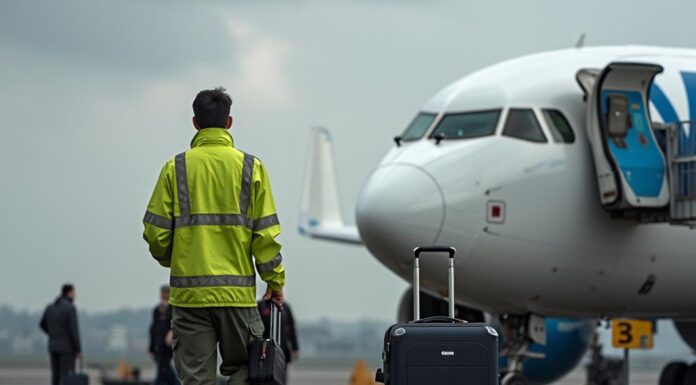Introduction: Unpacking the Realities of Air Travel Emissions and Carbon Offsets
Amid growing environmental concerns, the aviation industry faces immense pressure to reduce its carbon footprint. Although airlines promote voluntary carbon offsetting (VCO) programs as a solution to achieve “carbon-neutral” flights, the effectiveness and integrity of these initiatives are increasingly questioned. This article delves into recent research and expert opinions to scrutinize whether these offsets genuinely mitigate aviation emissions or merely serve as a tool for greenwashing.
The Rising Trend of Carbon Offsets in Aviation
Airlines are rapidly integrating carbon offset programs, enticing passengers to pay extra fees to fund environmental projects purportedly counterbalancing the emissions from their flights. According to the International Civil Aviation Organization (ICAO), commercial aviation was responsible for 2.4% of global fossil fuel emissions in 2018, with projections suggesting a potential tripling by 2050. Concurrently, the International Air Transport Association (IATA) has set ambitious goals to halve emissions by 2050 relative to 2005 levels.
However, a revealing study published in Nature Communications in 2025 describes how 44% of carbon offset claims by airlines are misleading, clouding consumer judgment and the actual benefits of these offsets.
Analyzing the Effectiveness of Carbon Offsets
Critiques of carbon offsets focus on several core issues:
- Additionality: Many projects would likely proceed without offset funding, raising doubts about their genuine impact.
- Permanence: Events like wildfires can swiftly reverse any sequestered carbon benefits.
- Leakage: Emission reductions in one area can lead to increases elsewhere.
- Double Counting: Credits may be claimed more than once, undermining actual emission reductions.
For instance, CORSIA’s anticipated mitigation of around 2.5 billion tonnes of CO2 between 2021 and 2035 is under scrutiny for such pitfalls. Concerns about social implications, including conflicts over land rights with Indigenous communities, further complicate the ethical landscape surrounding offsets.
Technological Innovations and Alternatives
While traditional carbon offsets face criticism, technological advancements propose alternative solutions:
- Convolutional Neural Networks (CNN): Enhanced models aim to improve prediction accuracy for more effective strategy planning in aviation carbon management.
- Sustainable Aviation Fuels (SAF) and other innovations like direct air capture (DAC) offer promise but come with their challenges such as high energy demands and extensive land use.
Nevertheless, these technologies do not address non-CO2 climatic impacts from aviation such as nitrogen oxides or contrails, which significantly contribute to global warming.
Toward True Environmental Accountability
Emerging trends highlight a shift toward stricter regulation and direct emission reduction strategies rather than reliance on offsets. Insights suggest that integrating policy measures such as frequent-flyer levies could curb air travel demand more effectively than current offset schemes.
Experts argue for a holistic approach combining technological innovation with robust regulatory frameworks to ensure genuine sustainability in aviation. Greater transparency in how offsets are marketed and applied is crucial to regaining public trust and moving toward real climate action.
KEY FIGURES
- Commercial aviation accounted for 2.4% of fossil fuel-related global emissions in 2018, with projections to triple by 2050 (ICAO) [2].
- IATA aims to reduce emissions by 50% by 2050 relative to 2005 levels [2].
- CORSIA is forecasted to mitigate about 2.5 billion tonnes of CO2 from 2021 to 2035 [2].
- A study found that 44% of voluntary carbon offset claims by 37 airlines were misleading [4].
RECENT NEWS
- Airlines increasingly offer carbon offsets for passengers, but criticisms grow regarding their effectiveness and claims of greenwashing (2023–2025 reports) [3][4].
- The US government announced plans to implement carbon offsetting guidelines to address criticisms of offset schemes (2023) [3].
- Investigations highlight that many offset projects suffer from issues such as reversals due to wildfires, poor additionality, leakage, double counting, and social harms like Indigenous land rights conflicts (ongoing scrutiny in 2024–2025) [4].
STUDIES AND REPORTS
- A 2024 Heliyon study developed an optimized deep learning model to improve prediction and strategy for aviation carbon offsets, showing potential for more precise offsets but noting implementation complexity [1].
- A Nature Communications (2025) analysis of airline carbon offset marketing found widespread misleading claims, including vagueness and minimizing true impact, questioning accountability [4].
- Environmental critiques emphasize that many offset types (e.g., monoculture plantations) can harm biodiversity and water resources while lacking permanence and additionality [2][4].
- CORSIA’s quality bar and registry conflicts of interest are under scrutiny, with concerns over offset credit quality and oversight [2][4].
TECHNOLOGICAL DEVELOPMENTS
- Improved convolutional neural network (CNN) models have been developed to optimize carbon emission predictions and offset strategies in aviation, enhancing adaptability and response time [1].
- Sustainable aviation fuels (SAF), e-fuels, direct air capture (DAC), and bioenergy with carbon capture and storage (BECCS) are promoted alternatives but face challenges including large land, water, mining footprints, and energy demands that constrain grids [2].
- Non-CO2 effects of aviation (e.g., contrails, nitrogen oxides) are not accounted for by offsets, complicating true climate impact assessments [2].
MAIN SOURCES
- https://pmc.ncbi.nlm.nih.gov/articles/PMC11456823/ — Scientific study on enhanced CNN models for aviation carbon offset optimization (2024)
- https://earth.org/how-airlines-are-adopting-carbon-offsetting/ — Overview of airline carbon offsetting practices and critiques (2020, updated context)
- https://www.ebsco.com/research-starters/environmental-sciences/carbon-offsetting-overview — Summary of carbon offsetting pros, cons, and regulatory developments (2023)
- https://www.nature.com/articles/s44333-025-00027-7 — Analysis of airline voluntary carbon offset claims and their misleading nature (2025)
Other references:
pmc.ncbi.nlm.nih.gov – Air passenger carbon offset and carbon neutrality strategies
earth.org – How Airlines Are Adopting Carbon Offsetting
ebsco.com – Carbon Offsetting: Overview
nature.com – Assessing airline communication for voluntary carbon offsets
nature.com – Source
committees.parliament.uk – Source
icao.int – Source
iea.org – Source
rff.org – Source
iata.org – Source
altexsoft.com – Source
flyapg.com – Source
examples.tely.ai – Source
agri-pulse.com – Source
carboncredits.com – Source
nationalgeographic.com – Source
eco-act.com – Source
x.com – Source
x.com – Source
x.com – Source
x.com – Source
x.com – Source
x.com – Source



